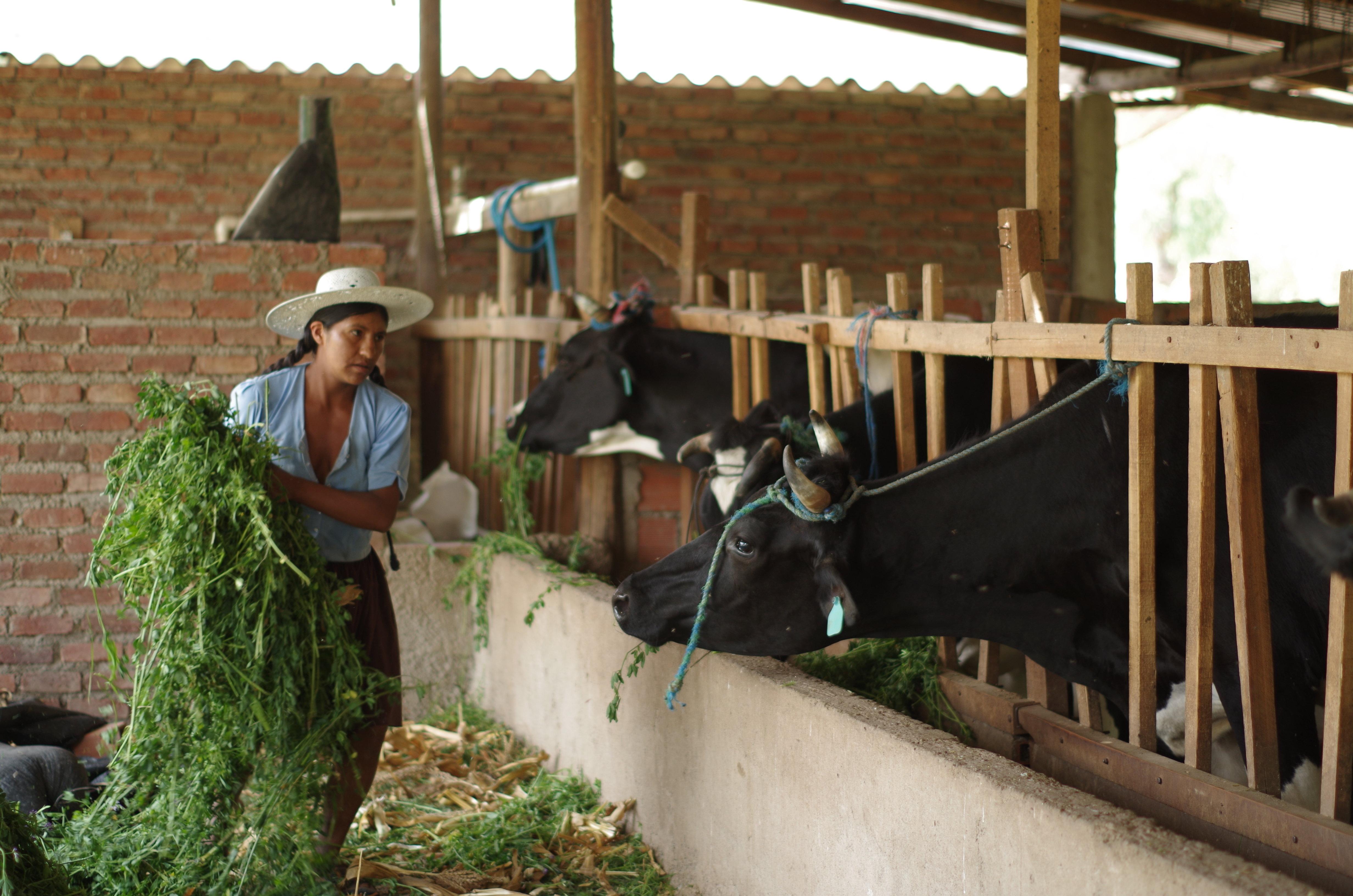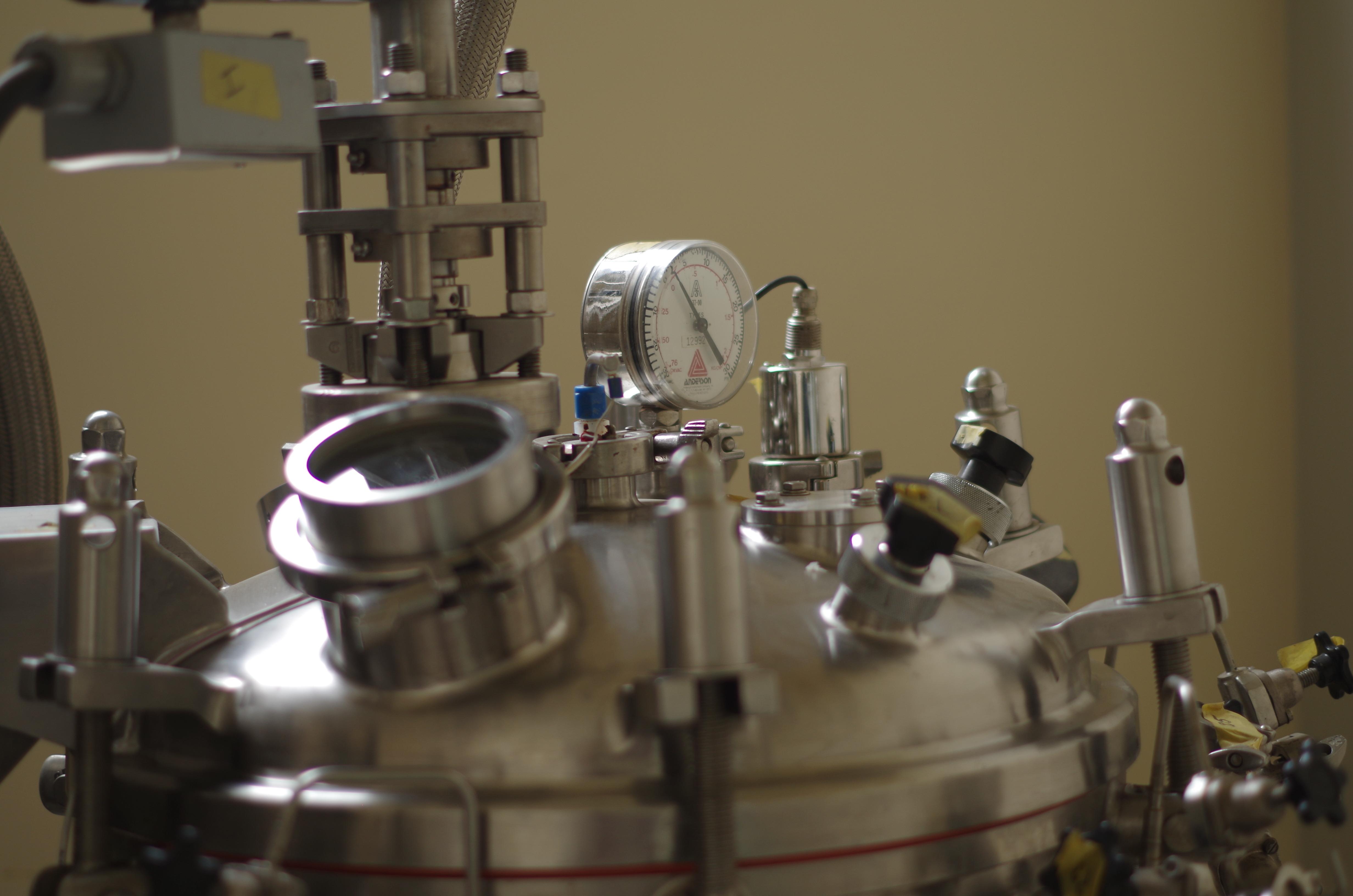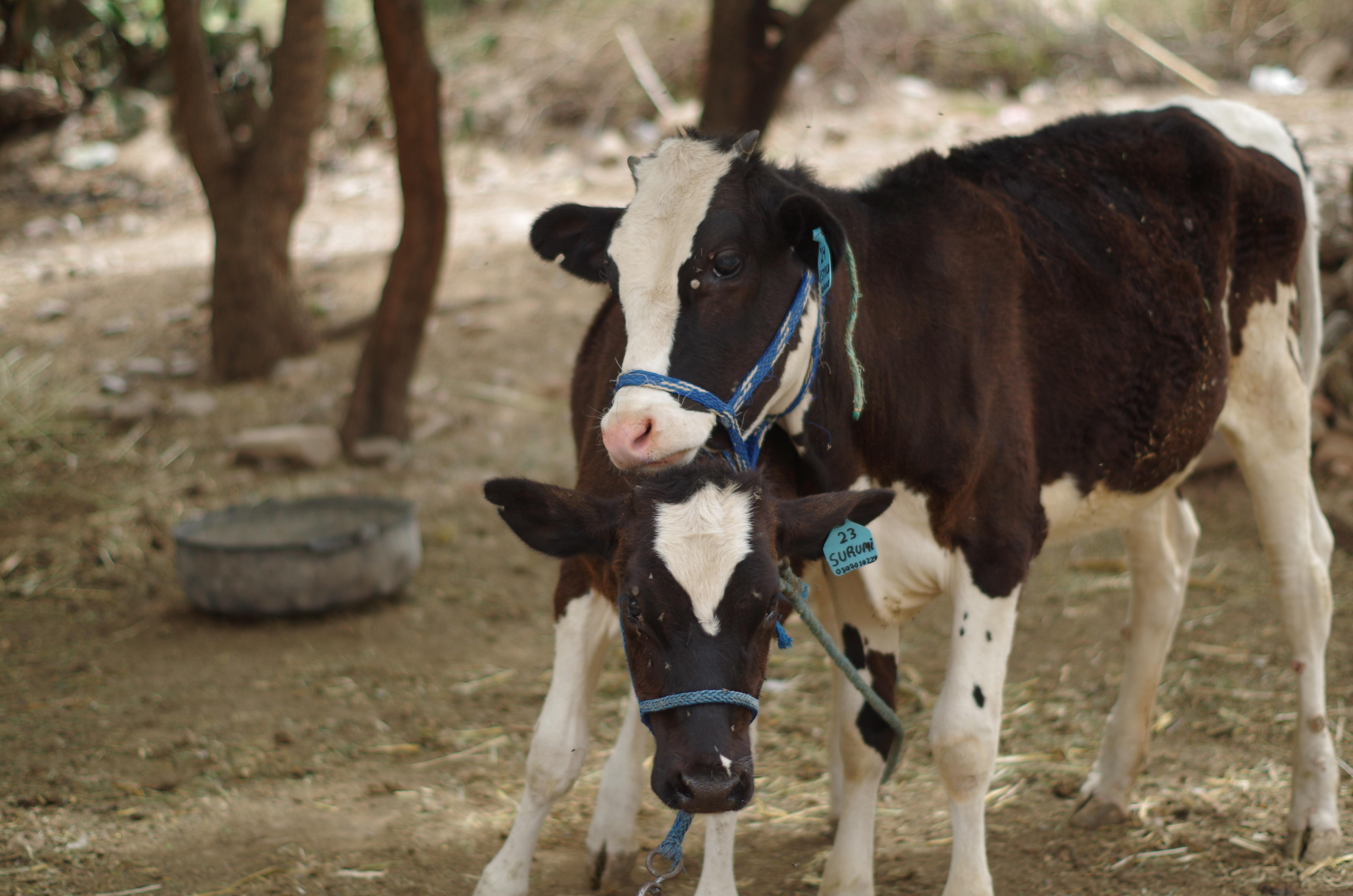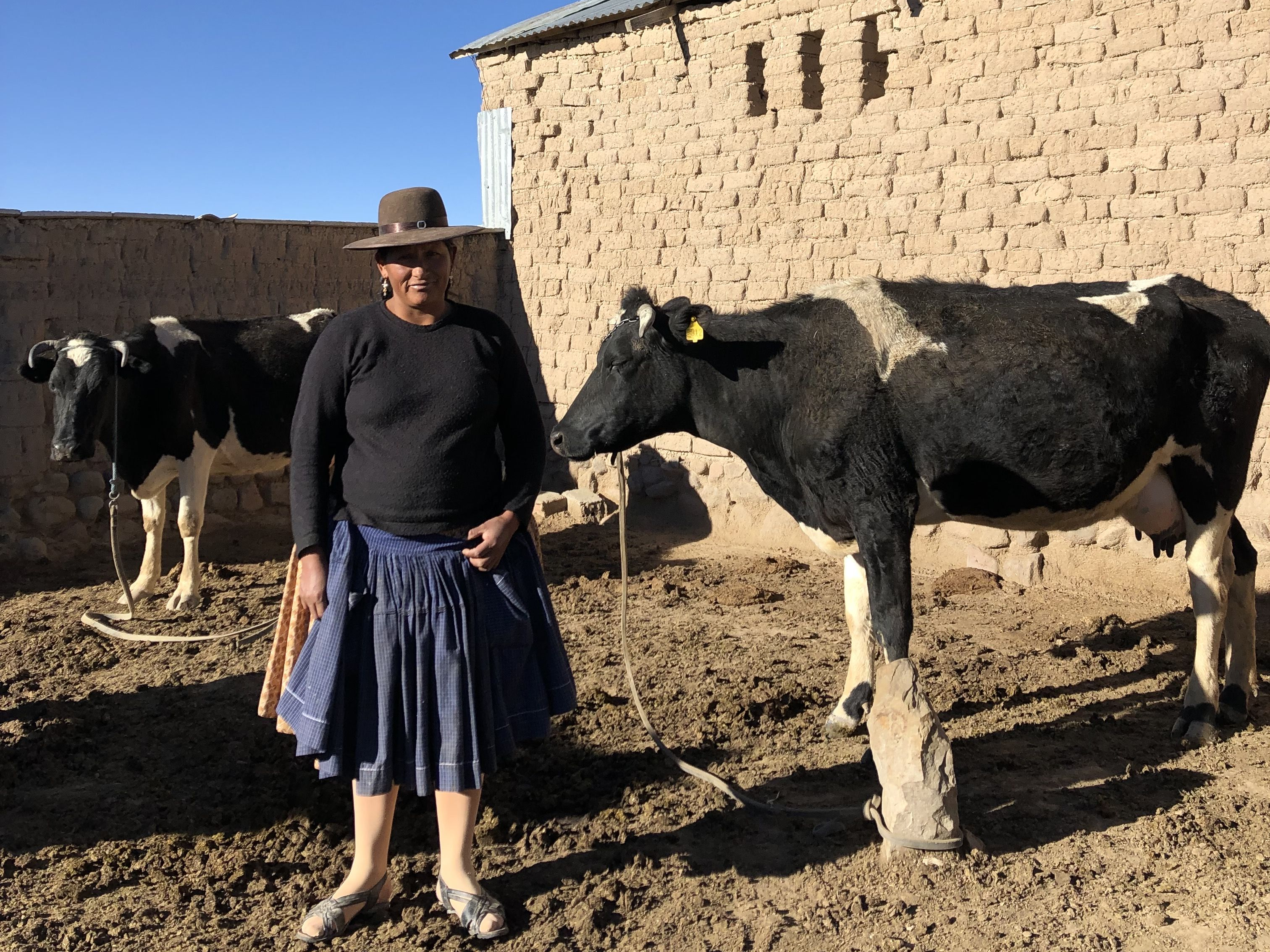A Nordic Climate Facility project supports sustainable agricultural development in Bolivia by using products based on beneficial micro-organisms
Through the production of bio-fertilizers and the promotion of probiotic bacteria products, the project has contributed to the reduction of emissions, reduced poverty of small-scale milk producers, as well as improved food security and enhanced adaptation and resilience strategies to climate change, reaching a total of 1190 beneficiaries in Bolivia.
Due to the impacts of climate change, Bolivian dairy production is based on poor quality forage, which gives rise to increased susceptibility to diseases and a deficient digestive process of the ruminants causing greater emission of methane from the rumen and low productivity. Additionally, current manure management in milk modules is inefficient leading to high emissions of GHGs and insufficient use of manure in the local production of crops.
The small-scale producers have limited opportunities for their development, due to poverty and food insecurity, which is further exacerbated by climatic variability and climate change. The project had the overall objective to demonstrate the use of products based on beneficial microorganisms as a means to achieve sustainable agricultural development in Bolivia. By the promotion of products containing probiotic bacteria (i.e., lactic acid, phototrophic bacteria, etc.) and the production of bio-fertiliser, the project assisted Bolivian smallholder farmers, to mitigate GHG emissions and build resilience to climate change.
When the smallholder dairy farmers used probiotic supplements in cattle feeding, the production of methane from enteric fermentation was reduced. Simultaneously, this improved productivity and health of the cattle, generating increased income for the farmers from the sale of milk. The milk production is an activity that is carried out by the women in the families and these overall positive results of using the probiotic supplements, gives them greater autonomy, empowering them in their activities within their family as well as in their community. Based on optimised manure management practices, including the application of bio-stimulants, these dairy farmers produced organic fertiliser. As a result, GHG emissions from the manure were reduced, and farmers could enhance their own production of crops. The new bio fertiliser, produced by the project’s local partner Biotop, was used by the farmers, with the effect of increasing soil fertility and resilience of the agricultural production. Overall, the project avoided a total of 1758 t CO2e in emissions and created 337 part-time jobs.
A fundamental lesson from the project is that products based on micro-organisms are as effective as, or even better than, synthetic products. Although, products based on micro-organisms are more efficient due to their positive contribution to resilience and the environment. Overall, the project learned that small-scale dairy can be improved significantly in Bolivia. For this, there is a need to improve the livestock feeding management practices, use of data as a basis for decision-making and create a horizontal relationship between producers and milk processing companies.
Even though the project has now finished, Biosa and Biotop have made an agreement to continue with the agribusiness in Bolivia. The project's potential to scale is significant, as only a small part of the universe of dairy producers in Bolivia has been reached, so the growth potential is great.
The project was led by Biosa Danmark ApS (Denmark) in cooperation with BIOTOP SRL (Bolivia). It commenced in 2018 and finished in 2021.





 The Nordic Climate Facility (NCF) is a challenge fund that finances innovative climate change projects.
The Nordic Climate Facility (NCF) is a challenge fund that finances innovative climate change projects.
